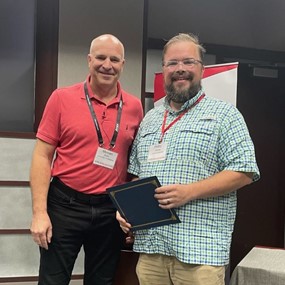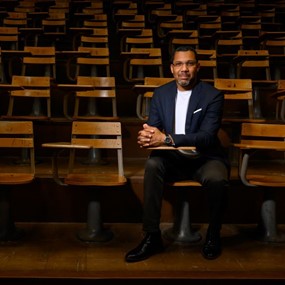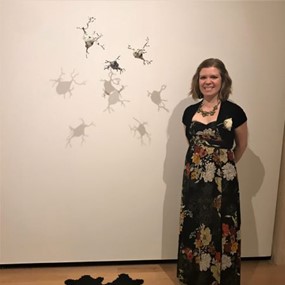Alley publishes new book on wastewater management in India

Kelly Alley, Alma Holladay Professor Emerita of Anthropology, published a new book, “Microbial Machines: Experiments with Decentralized Wastewater Treatment and Reuse in India” (University of California Press). The book includes detailed case studies describing how residents, workers and scientists interact with technology, science and engineering during the processes of treatment and reuse of wastewater in India.
Using a human-machine-microbe framework, Alley explores the ways that people's sensory perceptions of water—including disgust—are dynamic and how people use machines and microbes to digest wastewater. A better understanding of how the human and nonhuman interact in these processes will enable people to generate more effective methods for treating and reusing wastewater. While decentralized wastewater treatment systems may not be a perfect solution, they alleviate resource stress in regions that are particularly hard hit by climate change. These case studies have broad relevance for solving similar problems in many other places around the world.
Alley has conducted research in northern India for more than 30 years, focusing on public culture and environmental issues. Her first book, “On the Banks of the Ganga: When Wastewater Meets a Sacred River” (University of Michigan Press), explored Hindu interpretations of the sacred river Ganga in light of environmental problems.
Alley has worked with the World Water Forum and UNESCO to incorporate understanding of cultural diversity into water management. She worked on water governance in the Ganges-Brahmaputra-Meghna basin, and with colleagues and students, produced interactive maps of hydropower projects and wastewater management infrastructure. Her research has been supported by the Center for Forest Sustainability and the College of Liberal Arts at Auburn University, the National Science Foundation, the United States Information Agency/U.S. Department of State (Bureau of Educational and Cultural Affairs), and the American Institute of India Studies. In 2011, she was awarded the President's Outstanding Collaborative Units Award with members of the Center for Forest Sustainability at Auburn.
Tags: Faculty Research Anthropology






